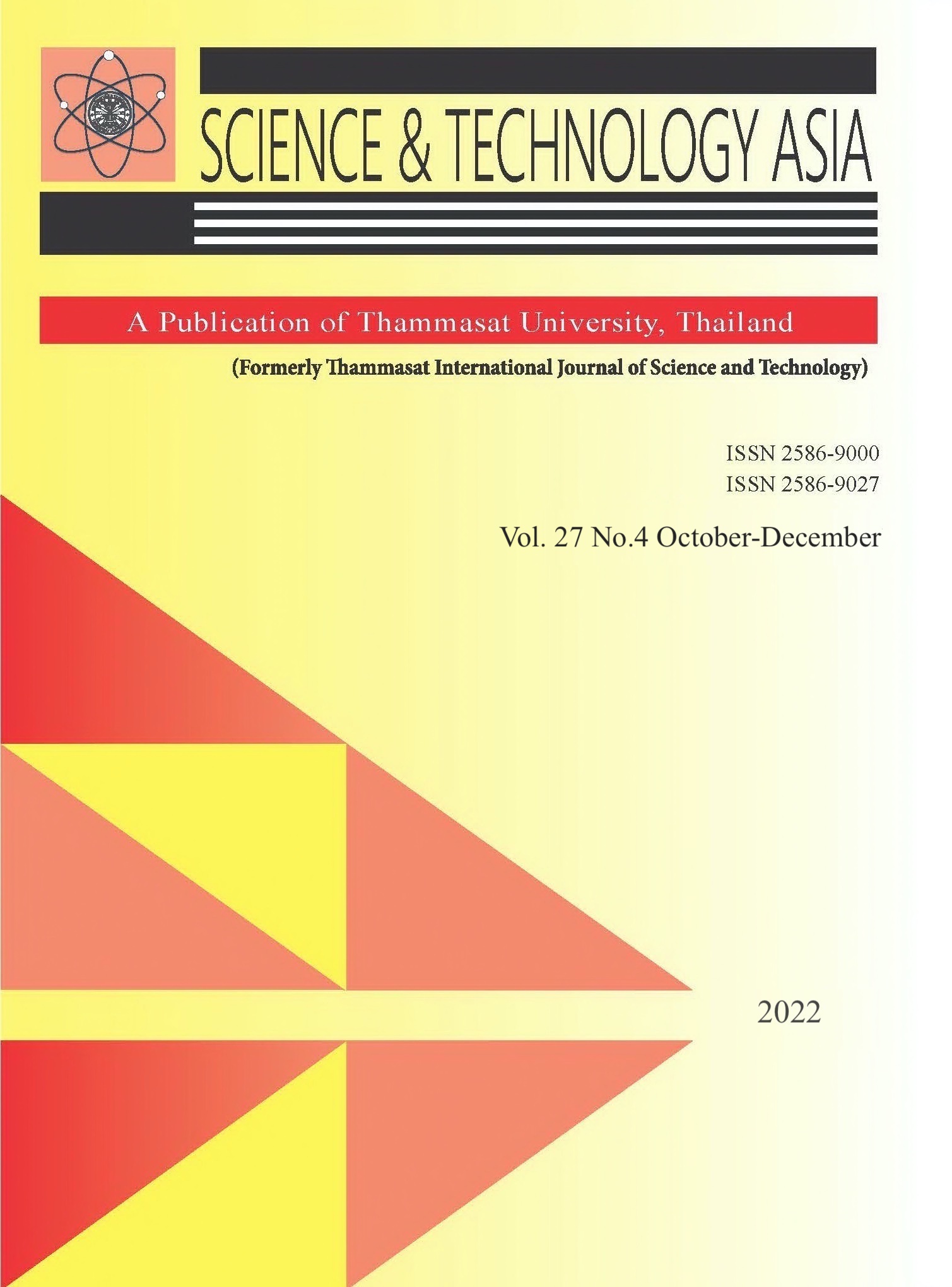Sumalee Kondo
Division of Molecular Genetics and Molecular Biology, Department of Preclinical Sciences, Faculty of Medicine, Thammasat University, Pathum Thani 12120, Thailand
Anucha Apisarnthanarak
Division of Infectious Diseases, Faculty of Medicine, Thammasat University, Pathum Thani 12120, Thailand
Suwanna Trakulsomboon
Faculty of Medical Technology, Nakhonratchasima College, Nakhonratchasima 30000, Thailand
Wannapa Bootkotr
Research administration office, Faculty of Medicine, Thammasat University, Pathum Thani 12120, Thailand
Chatchai Mingmalairak
Department of Surgery, Faculty of Medicine, Thammasat University, Pathum Thani 12120, Thailand
Prasit Mahawongkajit
Department of Surgery, Faculty of Medicine, Thammasat University, Pathum Thani 12120, Thailand
Jatupong Juntong
Department of Surgery, Faculty of Medicine, Thammasat University, Pathum Thani 12120, Thailand
Palin Limpavitayaporn
Department of Surgery, Faculty of Medicine, Thammasat University, Pathum Thani 12120, Thailand
Ekkapak Sriussadaporn
Department of Surgery, Faculty of Medicine, Thammasat University, Pathum Thani 12120, Thailand
Assanee Tongyoo
Department of Surgery, Faculty of Medicine, Thammasat University, Pathum Thani 12120, Thailand
Piyapong boonyasatid
Department of Surgery, Faculty of Medicine, Thammasat University, Pathum Thani 12120, Thailand
Trirat Chunsirisub
Department of Surgery, Faculty of Medicine, Thammasat University, Pathum Thani 12120, Thailand
Krisada Nakornchai
Department of Surgery, Faculty of Medicine, Thammasat University, Pathum Thani 12120, Thailand
Weerayut Thowprasert
Department of Surgery, Faculty of Medicine, Thammasat University, Pathum Thani 12120, Thailand
Pattarachai Kiratisin
Department of Microbiology, Faculty of Medicine Siriraj Hospital, Mahidol University, Bangkok 10700, Thailand
Prasit Palittapongarnpim
Pornchai Matangkasumbut Center for Microbial Genomics, Department of Microbiology, Faculty of Science, Mahidol University, Bangkok 10700, Thailand
Abstract
The proliferation of extended-spectrum β-lactamase-producing Enterobacterales (ESBLPE) is a serious global health problem. Screening for ESBL-PE from rectal swabs of patients who underwent abdominal surgery and determination of blaESBL genes were performed. E. coli producing the extended-spectrum β-lactamase enzyme (ESBL) (77.41%) and ESBL-producing K. pneumoniae (12.9%) were found in 31 out of 104 patients. The most prevalent blaESBL in both E. coli and K. pneumoniae were blaTEM and blaOXA-2, whereas blaSHV was most prevalent only among K. pneumoniae. In contrast, blaCTX-M and blaOXA-10 were the least detected in E. coli and K. pneumoniae. The fecal ESBL producers isolated from swabs taken prior to and after abdominal surgery illustrated persistence of colonization in patients’ guts. Multiple- drug resistant bacterial infections found among ESBL carriages appeared to be associated with prolonged hospitalization and underlying complex diseases. It is essential that healthcare professionals are cognizant of the importance of monitoring for the presence of these ESBL producers, and reducing both intra-abdominal surgery site infections and the spread of resistance genes in prolonged fecal ESBL carriages in high-risk patients.



